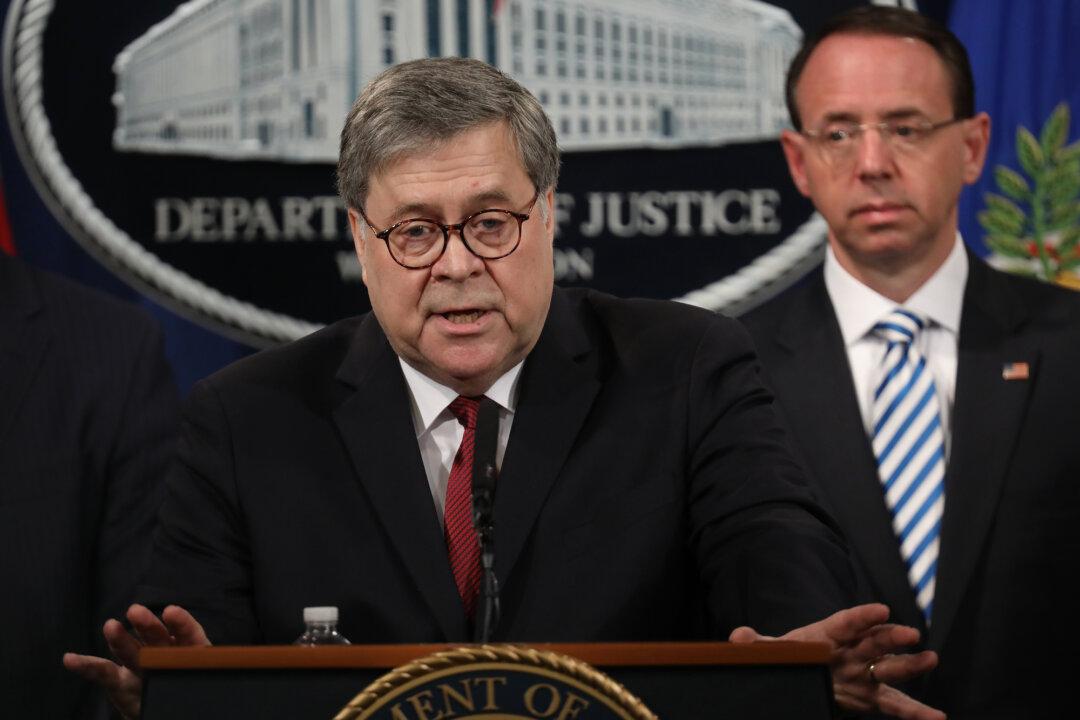President Donald Trump declined to assert executive privilege to redact any portion of the special counsel report by Robert Mueller “in the interests of transparency and full disclosure to the American people,” Attorney General William Barr said on April 18.
The Justice Department provided White House attorneys with a copy of the report in accordance with the law, Barr said. The decision to assert executive privilege to black out portions of the document rested with the president and Trump decided to not request any redactions, according to Barr.





